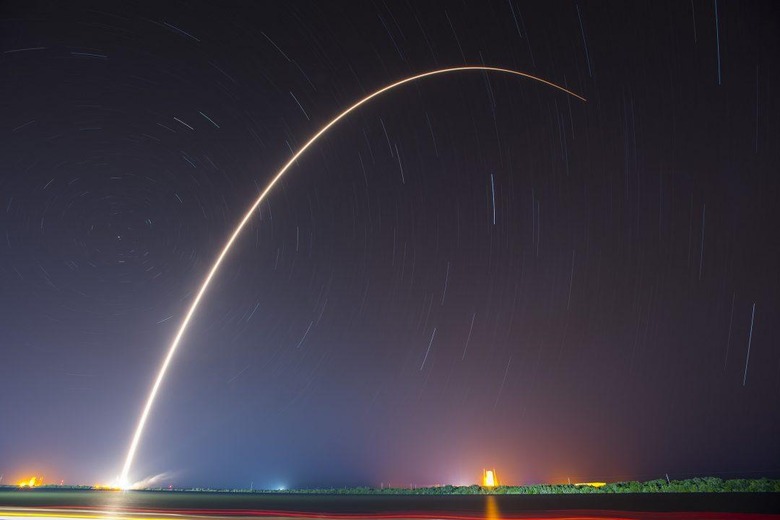SpaceX Didn't Fail At Landing A Rocket At Sea After All
Some recommend your expectations low so that you will be pleasantly surprised when you succeed but won't take it too hard when you fail. That might not be the reasoning behind SpaceX's less than enthusiastic outlook as it launched another Falcon 9 to put the JCSAT-14 commercial communications satellite into orbit. It already set a low probability for making a safe sea landing this time around because of the specifics of this mission. Well, guess what? SpaceX nailed it yet again. So yes, it successfully landed another rocket at sea.
Given SpaceX and Blue Origin's successful rocket landings, you'd think that the two companies already have the process down to a "T". Of course, rocket launches and landings are never, or at least not yet, like that, so each and everyone is involves a risk.
This latest SpaceX mission, however, is even more of a gamble when it comes to landing the rocket safely on a floating drone. SpaceX's previous successful landings involved launching a spacecraft only 400 km above the earth. In contrast, this one, which will jettison the JCSAT-14 satellite, will take the rocket 36,000 km above the planet's surface. That high an altitude naturally requires more force, and more fuel, which leaves the first stage, the part that needs to land, with less fuel to make a non-explosive landing.
So imagine the amount of jubilation at SpaceX when, despite their gloomy forecast, they were indeed able to land the rocket's first stage without a hitch. Remember, this is on a drone barge at sea, which makes it an even harder target to hit, especially with less than enough fuel to make course corrections and what not.

This makes it the second time SpaceX was able to land a rocket on sea, and one where the odds were really stacked against it. So congratulations are definitely in order. Hopefully, despite being prepared for the worse, SpaceX will have pretty images and videos, and even 360-degree ones, to commemorate this rather unexpected success.
